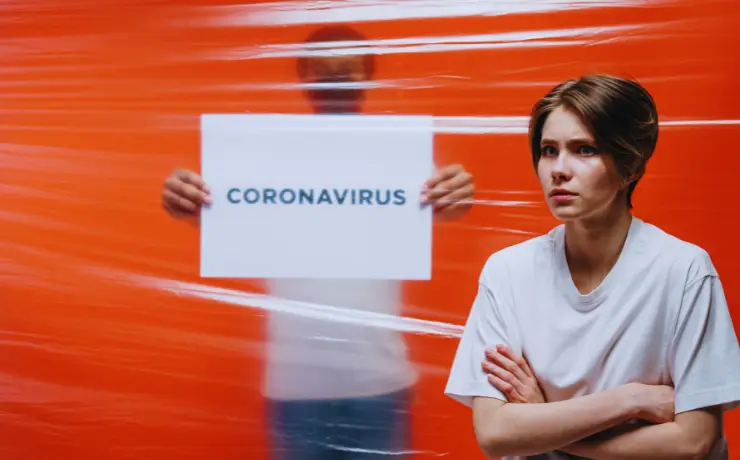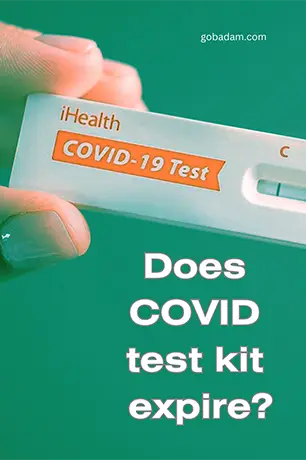Does Covid test kit expire? Can I use my expired covid test kit? Shelf life, proper storage, and other secrets about Covid tests are waiting to be discovered in this article.
SEE OFFER 👉🏻 Covid Test Kit
Nowadays, there are many accessible health test kits at home, and at home Covid tests are one of them. The effects and new variants of this global epidemic, which has shaken our lives completely and changed our lifestyles, continue unabated.
Although we do not yet know how previously unseen coronavirus variants may affect our lives now and even in 2024, we can at least find out whether we are sick or not with tests we can do at home.
Does COVID test kit expire? Let’s get more information about coronavirus test kits expirations and other helpful details about them.
If you suspect that you have coronavirus and you may be pregnant, I strongly recommend that you take a pregnancy test as well. For optimal results, ensure that the pregnancy test is not expired. Learn more about do pregnancy test kits expire.
Does Covid test kit expire?
Yes, COVID test kits do expire. However, they can still work too. COVID test kits, like many medical and diagnostic supplies, have a shelf life after which they are considered expired and should not be used.
The expiration date is typically indicated on the packaging or in the manufacturer’s instructions. Using an expired test kit could result in inaccurate results, either false negatives or false positives, because the chemical reagents and other components may degrade over time.
Manufacturers and regulatory agencies, such as the FDA in the United States, specify expiration dates based on rigorous testing to ensure the product remains effective and reliable up to that date.
After this date, the kit is not guaranteed to function as intended. Hence, it’s crucial to always check the expiration date before using a COVID test kit and to adhere to any storage guidelines to maintain its efficacy for as long as possible.
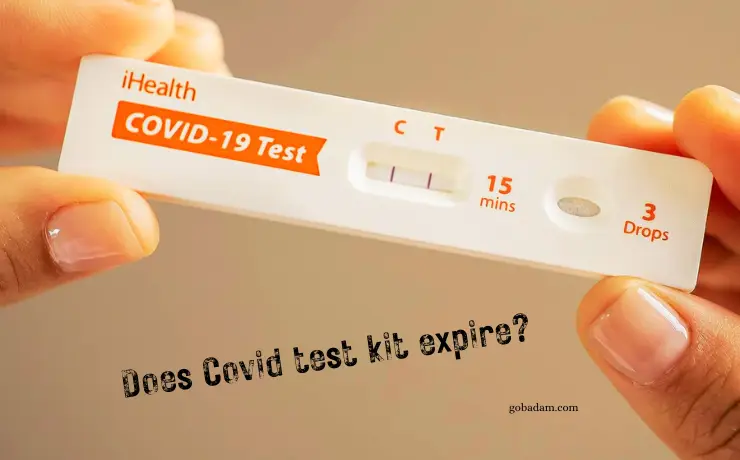
Can I use an expired covid test?
Using an expired COVID test kit poses a risk of obtaining inaccurate results. The chemicals and reagents in the test may degrade over time, affecting the test’s sensitivity and specificity.
This means you could get a false negative or false positive result, leading to potential mismanagement of your condition or giving you a false sense of security.
Regulatory agencies like the FDA (Food and Drug Administration in the United States) set expiration dates to ensure that medical devices, including COVID test kits, are used within a timeframe that ensures their efficacy and reliability.
Using test kits past their expiration date undermines these safeguards and could lead to incorrect actions based on the results—such as not isolating when you should, or vice versa.
In cases where you have no other option but to use an expired test kit, it’s important to interpret the results with caution and seek additional confirmation through more reliable means, like a new, non-expired test or a PCR test administered by healthcare professionals.
Understanding the Shelf Life of COVID Test Kits
Checking the expiry date before using a COVID test kit is crucial for ensuring accurate and reliable results. Using an expired kit can compromise the test’s efficacy, leading to possible false negatives or false positives.
Does COVID test kit expire? Yes, they might be. This could result in incorrect medical decisions, such as failing to isolate when infected, thereby putting others at risk. Always verify the expiration date to maintain the integrity of the test.
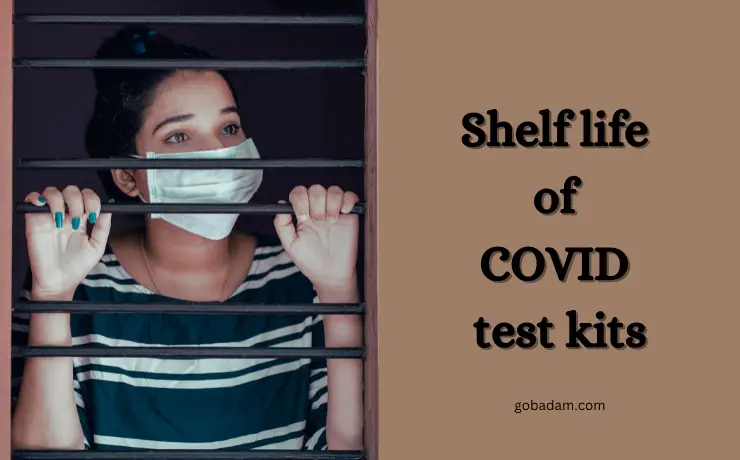
Effects of Expired Test Kits on Test Results
Using expired test kits can lead to inaccurate results due to the degradation of chemical reagents and other components over time. Here are some specific effects:
Reduced Sensitivity: An expired test might not detect the virus even if it is present, leading to a false negative result.
Reduced Specificity: The specificity of the test could also be compromised, causing it to incorrectly identify other substances as the virus, leading to a false positive.
Chemical Instability: Over time, the chemicals and reagents in the test kit can degrade, which can result in ambiguous or unclear readings.
Quality Control: The overall reliability of the test diminishes after the expiry date, making the results less trustworthy.
Risk of Misinterpretation: Using an expired test could lead to confusion and misinterpretation of the results, possibly causing unnecessary stress or false reassurance.
Informed Decision-making: Inaccurate test results could impact crucial decisions, such as whether to isolate, seek medical care, or attend a social gathering.
Public Health Implications: Incorrect results can have broader implications, including contributing to community spread of the virus.
Therefore, it’s imperative to check the expiration date to ensure the reliability and accuracy of your COVID test results.
Does COVID test kit expire? If it does, we should be aware of some risks associated with using expired test kits. Using expired test kits can lead to inaccurate results, risking false negatives or positives. This can result in poor medical decisions, community spread of the virus, and wasted healthcare resources. It’s crucial to check the expiration date for reliable results.
Always follow the manufacturer’s instructions on kit lifespan.
How Storage Conditions Affect Test Kit Expiration?
Storage conditions significantly impact the shelf life and effectiveness of COVID test kits. Factors like temperature, humidity, and exposure to light can degrade the chemical reagents, leading to unreliable results. Following manufacturer guidelines for proper storage can extend the kit’s lifespan and ensure accurate testing.

Factors that Contribute to Test Kit Degradation
Several factors contribute to the degradation of COVID test kits, affecting their reliability and accuracy:
Temperature: Extreme temperatures, both hot and cold, can degrade the chemical reagents and affect test accuracy.
Humidity: Excessive moisture can cause the components to break down more quickly.
Heat and humidity not only affect the degradation of home health test kits but also affect the shelf life of many hygiene products we use in our daily lives. Some of these are tampons, menstrual cups, panty liners, baby diapers, and laundry pods that we keep especially in our bathrooms.
Light Exposure: Direct exposure to light can also cause degradation, particularly for kits with light-sensitive components.
Time: Simply the passage of time can lead to a gradual breakdown of the kit’s components, making the kit less effective.
Physical Damage: Any kind of mechanical stress or damage to the test kit could also compromise its integrity.
Contamination: The introduction of foreign substances can also degrade the kit and affect results.
Improper Handling: Not following the manufacturer’s storage instructions can accelerate degradation.
Chemical Instability: Some chemical reagents are inherently less stable and can degrade faster.
Understanding these factors can help in storing test kits appropriately to maximize their shelf life and reliability.
How to Properly Store COVID Test Kits?
Proper storage of COVID test kits is essential to maintain their effectiveness and ensure accurate results. Here’s how to store them correctly:
Follow Manufacturer’s Instructions: Always refer to the manufacturer’s guidelines provided with the test kit. They offer specific storage recommendations tailored to that particular kit.
Temperature: Store the test kits at the recommended temperature, typically at room temperature. Avoid extreme temperatures and keep away from direct heat sources or cold spots.
Avoid Direct Sunlight: Protect the test kits from direct sunlight, as UV rays can degrade some of the components.
Keep Dry: Ensure the kits are stored in a dry place. Avoid exposure to high humidity or wet environments, which can compromise the test’s chemical reagents.
Original Packaging: Retain the test kits in their original packaging until use. The packaging is designed to protect the kit from external factors.
Away from Contaminants: Store the kits in a clean environment, away from any chemicals or contaminants that might interfere with the test components.
Secure Storage: If possible, store in a dedicated storage area or container to prevent inadvertent damage or contamination.
Check Expiry Date: Before storing, note the expiration date and organize kits so the ones expiring soonest are used first.
Avoid Frequent Handling: Minimize handling the kits unnecessarily to reduce the risk of contamination or damage.
Seal Properly: If a kit comes in a resealable package, ensure it’s sealed properly after every access.
By following these guidelines, you can help ensure the reliability and accuracy of COVID test kits, making sure they function as intended when you need them.
What to do with expired covid tests?
Let’s get to know how to dispose of expired Covid tests properly. Proper disposal of expired COVID test kits is crucial to ensure both safety and environmental protection. Here are the best practices for handling and disposing of expired kits:
Consult Manufacturer Guidelines: Always check the manufacturer’s instructions for specific disposal recommendations, as the components may differ between kits.
Separate Components: If possible, separate the plastic components, chemical reagents, and any electronic parts. This can facilitate easier recycling and waste management.
Biological Hazard Considerations: If the kit has been used, it may pose a biological hazard. In such cases, place it in a biohazard waste bag or a sealed plastic bag.
Use Proper Containers: Expired test kits, particularly those that have come into contact with bodily fluids, should ideally be placed in leak-proof, puncture-resistant containers with a biohazard symbol.
Check Local Regulations: Some jurisdictions may have specific guidelines for medical waste disposal. Make sure to follow these rules if they are available.
Contact Local Health Authorities: If you’re uncertain how to dispose of the kit, contact local public health departments or waste management services for advice.
Don’t Flush Components: Never flush any part of the test kit down the toilet, as this can contaminate water systems.
Recycling Centers: Some parts of the test kit may be recyclable. Check local recycling guidelines to see if this is an option.
Pharmaceutical Take-Back Programs: Some locations offer take-back programs for medical waste. See if such a program exists in your area and whether they accept COVID test kits.
Avoid General Waste: Unless specifically advised, avoid disposing of the test kit in general household waste, as it may require special treatment.
Dispose in Bulk: If you have multiple expired kits, gather them together and dispose of them at once to reduce multiple trips and ensure consistent disposal practices.
By following these best practices, you can ensure that you’re disposing of expired COVID test kits in a manner that is both safe and environmentally responsible.
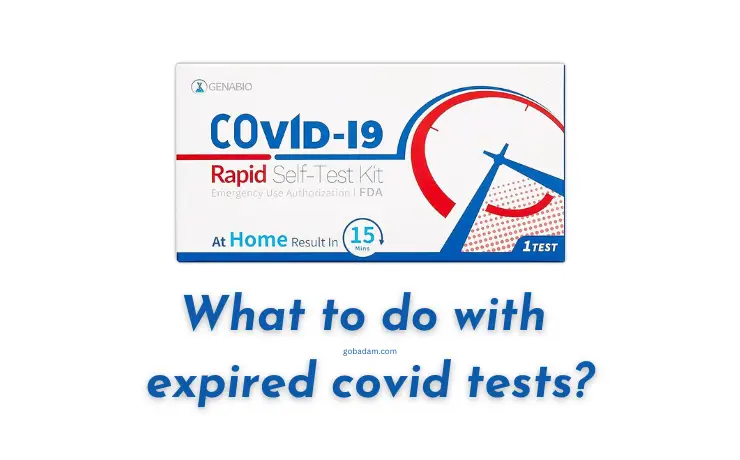
Frequently Asked Questions About at home covid test expiration
Maybe, does the COVID test kit expires and needs more than answers. Here are the top questions about covid test kit expiration date and more.
Can at home test go bad?
Yes, at-home COVID test kits can go bad and have an expiration date. Using the past this date can result in inaccurate results. Be sure to check the expiry date before use.
Even after the expiry date, are coronavirus tests still working?
After the expiry date, the reliability and accuracy of coronavirus tests are not guaranteed. While the test might still function to some extent, the risk of getting an inaccurate result—either a false negative or a false positive—increases. It is recommended to use tests that are within their expiration date for reliable results.
Do expired Covid test kits provide false negatives or positives?
Expired COVID test kits are more likely to produce unreliable results, which could be either false negatives or false positives. The chemical reagents and other components may degrade over time, affecting the test’s sensitivity and specificity.
Therefore, while it’s not guaranteed that an expired test will give a false result, the risk is significantly higher. For accurate and reliable results, it’s essential to use a test kit that is within its expiration date.
What is the meaning of an expired covid test positive?
If you get a positive result from an expired COVID test kit, the result should be interpreted with caution. While a positive result may suggest you are infected with the virus, the test’s reliability is compromised due to its expired status. Chemical degradation could lead to reduced specificity, increasing the chances of a false positive.
Given the uncertainties surrounding expired test kits, it’s advisable to confirm the result with a new, non-expired test or, ideally, a PCR test administered by healthcare professionals. This will provide a more reliable basis for any subsequent medical decisions or public health actions, such as isolating to prevent potential spread.

